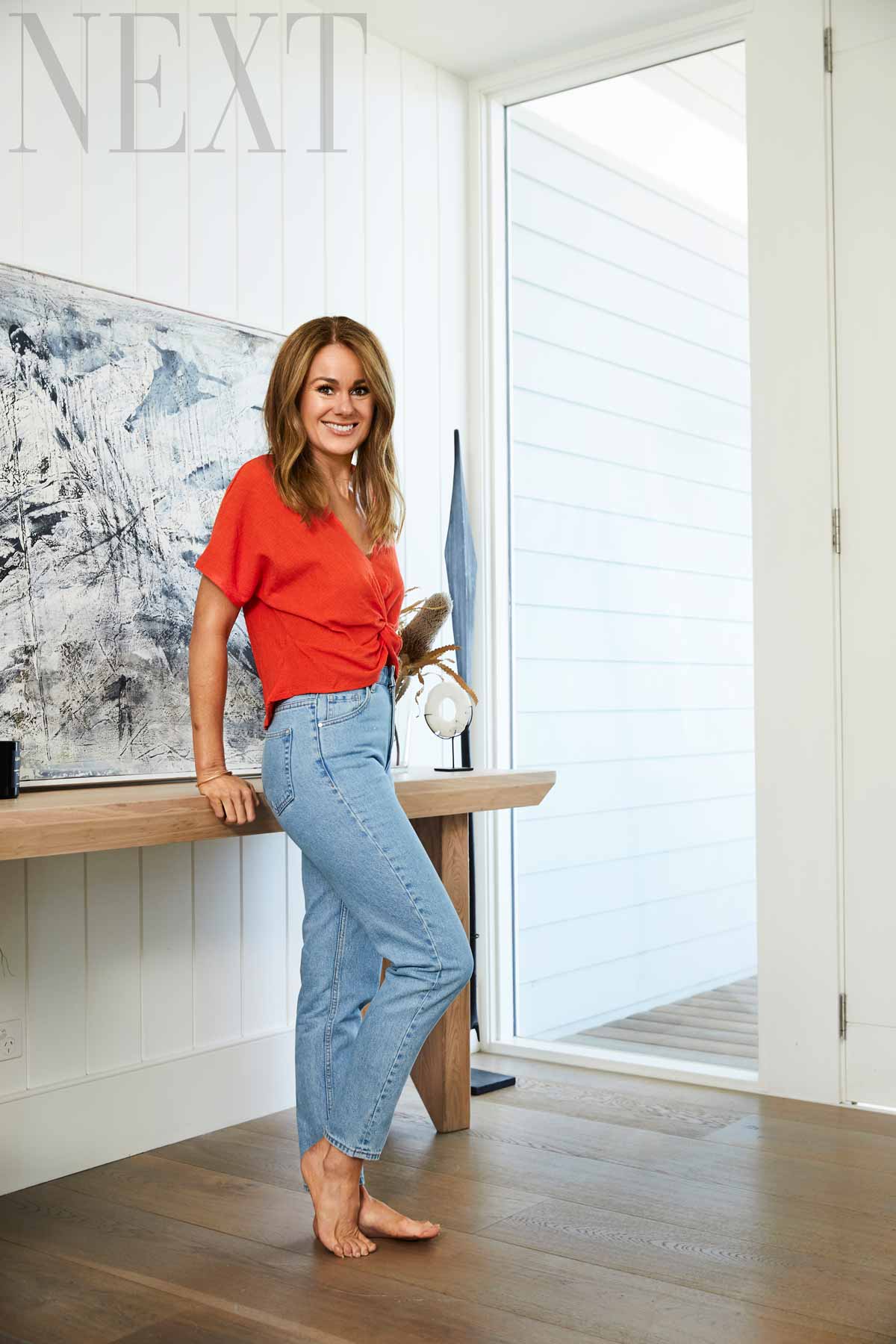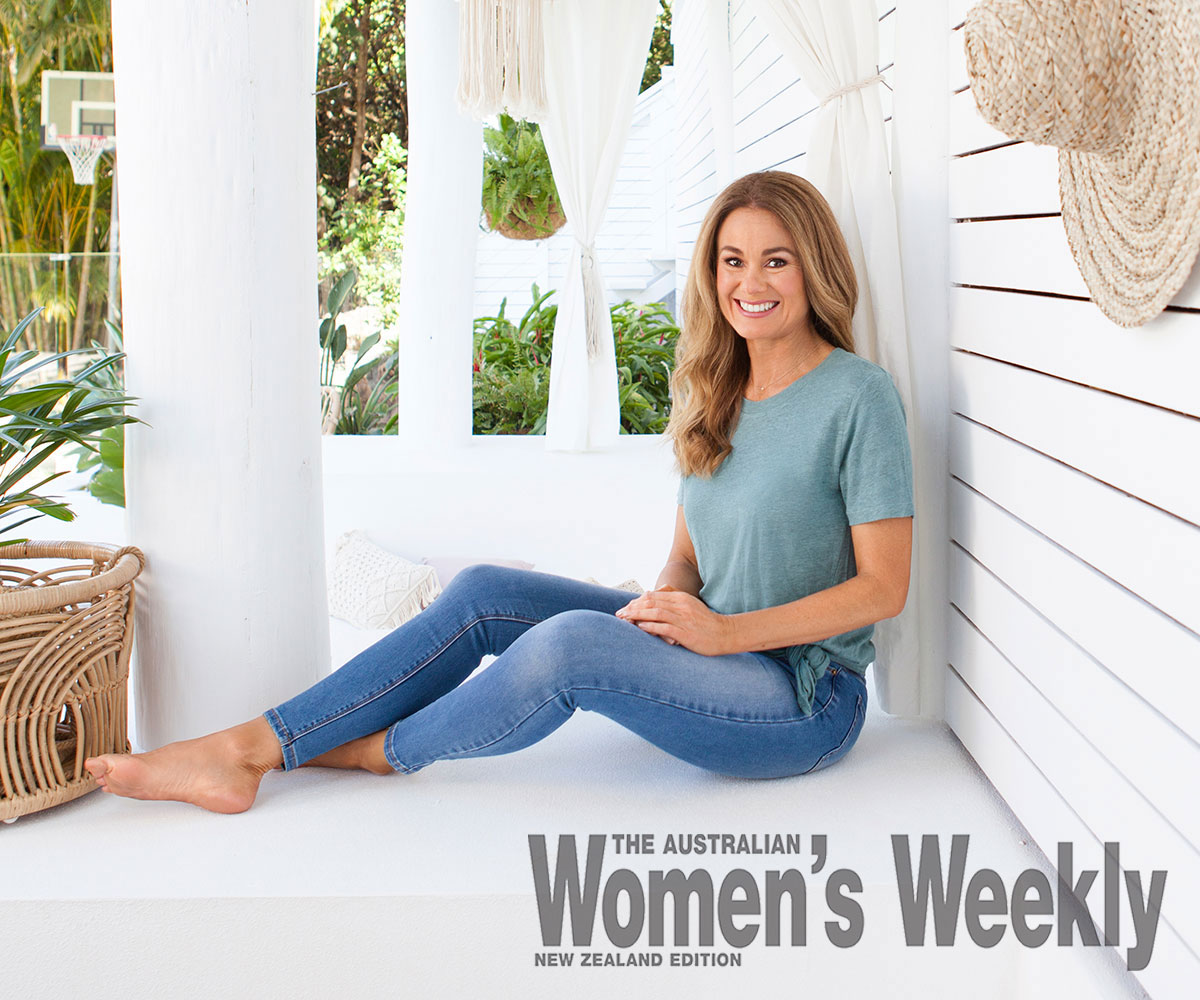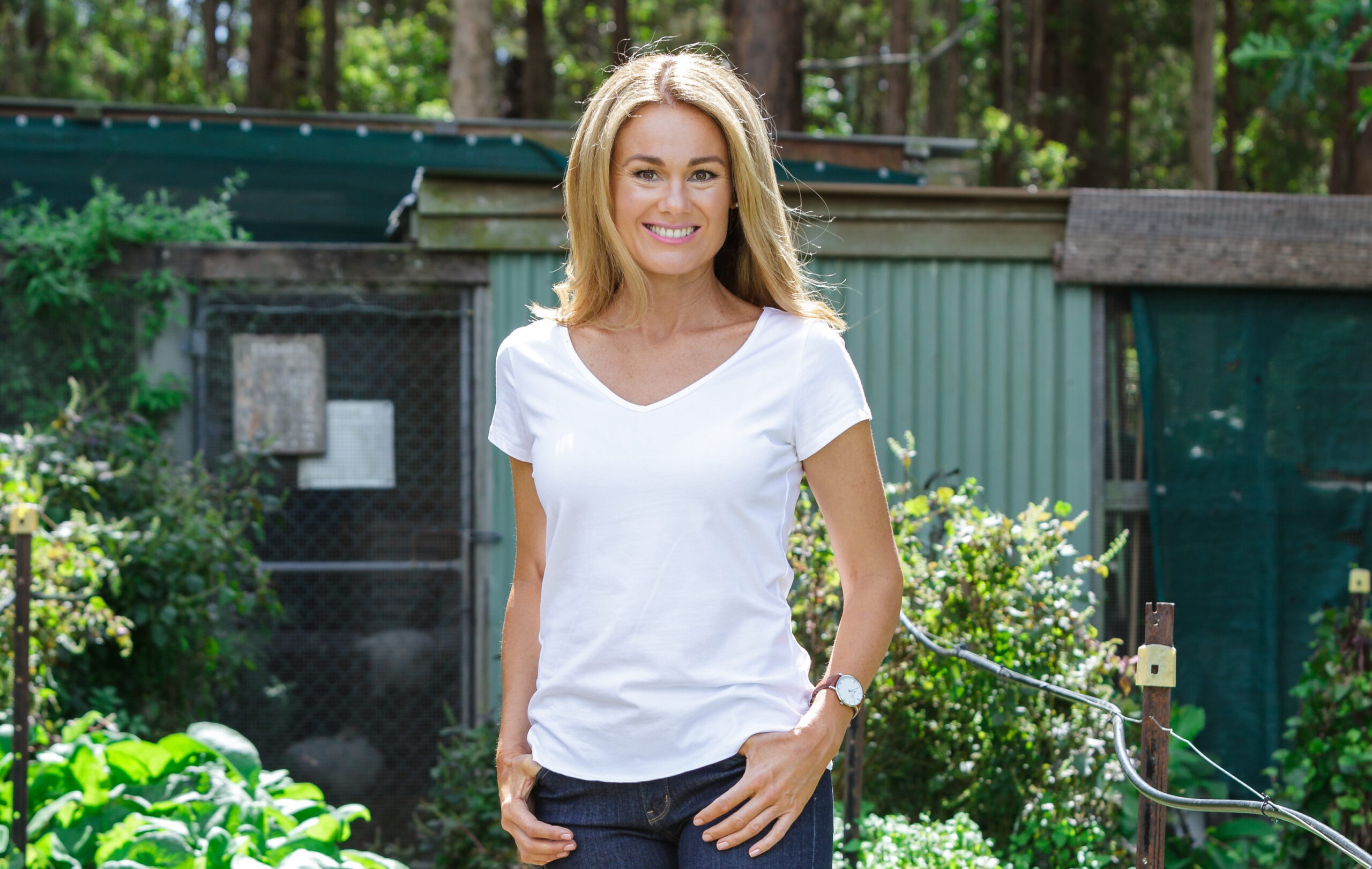If anyone has a right to get stressed from time to time, surely it is Dr Libby Weaver. She juggles a huge workload, writing books, running natural health clinics on both sides of the Tasman, busy with tours, wellness weekends and speaking engagements. It would be a lot for anyone to tackle, but for a self-confessed introvert who thrives on peaceful moments alone, doing so much high-profile work could easily be overwhelming.
So does Libby ever get stressed? Yes, of course. But does she continue to feel that way, her body constantly churning out the stress hormones cortisol and adrenaline, throwing her out of balance mentally and physically, and taking a serious toll on her health? No, thankfully not.
“When I get stressed it doesn’t last for long, because I wouldn’t be able to manage the work I do in the world if I stayed in that place,” explains Libby, 45. “I see everything in life as lessons, everything as learning, so when stress bubbles up and I get caught in it, I work out what has led me into getting hooked into that pattern.”
There is a catchphrase she uses in every aspect of her work, “the road in is the road out”. In other words, whatever has led to the problem has to be corrected for the person to experience relief. In her latest book, The Invisible Load, she encourages readers to take that approach with the chronic stress she sees as the root cause of so many of our health issues – from severe PMT and menopause symptoms, to unexplained weight gain and sleeplessness.
The Invisible Load is about treating the experience of stress as an opportunity to find out more about yourself, and understand what is really bothering you. It reflects a personal journey that Libby has been on for several years now.
“When I wrote Rushing Women’s Syndrome back in 2011, that was when I was really learning these lessons myself,” she explains.
Libby loves her work and really does think of it as her purpose in life, but she has discovered that having an introverted personality means it is crucial for her to make the time and space to power down.
“The key for me is that I need to be by myself,” she explains.
“So after I have done my work I will do very solitary stuff like garden, read or go for walks in nature; that’s how I recharge. I didn’t used to do that, but now it is incredibly important to me and I will literally schedule it. I’ll work hard to allow myself to have that space because I think for people who are introverted, it’s got to be a part of how we look after ourselves.”

Libby is an early riser, springing out of bed at 5am in the summer months, a little later in winter, and making sure she starts every day with a period of calm.
“I’ll do whatever I like for a good half hour, sometimes even an hour,” she says. “That might be exercise or reading, or I will go and sit outside and watch the sun rise. I have no plans. It’s beautiful space time, and that’s pretty consistent.”
At her home in Burleigh Heads, Queensland she has a garden with lots of trees and birdlife, and one of her favourite ways to spend a Sunday is pottering about with her hands in the soil.
“I’ve got eight raised garden beds, all neatly packed together, with all sorts of things growing. My parents always grew vegetables when I was growing up in Tamworth, New South Wales and I love growing food, it’s one of my passions.”
Soil health is a bit of an obsession – one of the reasons Libby chose Queensland to live in when she moved back home from Auckland, is that it has some of the best, nutrient-dense soil in Australia – and she admits to being a geek with her rain gauge.
“I love measuring how much rain I get! I’m not home all that much, but when I am here, then I enjoy being in the garden, growing things, watching birds catch worms. It’s all really supportive of my soul health.”

Slowing down and getting used to her own company
In 2016 Libby cited her need to honour her introverted nature as the reason for her split with husband, New Zealander Chris Warren. She told NEXT back then that she would always love him and he was a treasured friend.
Three years on that continues to be the case and Chris remains the CEO of her company. “He’s a joy to be around, we’re great mates, and I see him most days at work,” says Libby.
Much as she cares for Chris, she doesn’t want to be with him, nor is she in any hurry to find love with someone else. “I’m very happy by myself,” she maintains.
“It’s regenerative. I don’t know if I could keep doing the work I do in the world if I didn’t have my downtime. Also I love writing so much, and have the space to do that when I’m on my own.”
This attitude might be difficult for some of us to understand. But one of the points Libby is making in The Invisible Load is that we all have to ask ourselves how we want to spend our time and energy, and how we want our lives to be. For Libby, things like solitude, eating organic food, playing tennis, and being outdoors are priorities – others will have different needs.
“Not everyone wants to step aside from a jam-packed life,” she says. “Many will choose to stay in the rush because they thrive in it. I’m trying to help people not suffer with their health and one of the building blocks of that is understanding how we think, what brings us joy, what lights us up, what supports us. That’s why I ask the question in the book, ‘How do you want to live?'”
Libby is concerned at the level of stress out there and the impact it is having on us, young and old. While she no longer sees people for one-on-one consultations in her clinics, the loud and clear message she is getting at all those weekend wellness retreats and live events, is that stress is creating a lot of suffering.
“There’s a normalcy around being so stressed now; you think everyone is experiencing this,” she says. “And I don’t want that to be the case because I believe it’s unnecessary.”
No more stress
In years gone by, the body’s natural stress response was an important survival mechanism. Faced with a very real threat, stress hormones flooded the body and primed us for fight or flight.
In the modern world we are stressed by ongoing problems like overflowing email inboxes, unreasonable colleagues or deadlines, bills and mortgages and for younger women especially, social media.
Our adrenal glands are producing stress hormones in response to these relentless perceived threats, and in the meantime they switch off their other functions, leading to a host of health issues.
The things we do to alleviate those feelings of stress – like taking herbal supplements or doing breathing exercises – are only bandages, argues Libby, when what we really need is to get to the heart of what is causing them in the first place.
“The hormonal problems I’m seeing were a big impetus for me writing this book,” she explains. “If you can get the adrenals not constantly churning out stress hormones and allow them to make some sex hormones as they were intended to, the menstrual cycle is way gentler as is the transition through to menopause.”
There are various physical ways to approach this – all the things you are always hearing about, such as eating well, moving more and sleeping enough – but in Libby’s opinion none of that will succeed if we don’t deal with what is going on inside our heads.
One of the very first steps is to stop over-using the word “stress” and drill down into what we really mean. It might be that what we’re actually saying is that we’re sad, she explains.
Or our stress might be rooted in a fear of letting people down, not being seen as hardworking, efficient, considerate or kind, not feeling smart enough or good enough.
“Stress has become a big blanket term for so many different things, which is why we need to work out what it is for us as individuals so that on a physical level, our health doesn’t suffer the way it’s starting to,” says Libby.

In her own life she is practising what she preaches. She tweaked her own schedule last year because she realised taking on public speaking engagements night after night was wearing her down, rather than lighting her up.
“I changed things so the speaking events were more uplifting and I had a chance to chat to people and find out what had resonated with them.”
Libby considers herself fortunate to work with a great team of people that provide the support needed for her to block out the time to work on the book projects she is so passionate about.
“I’ll always write, it’s how I work things out – writing in my journal and then I try to translate it into concepts others can potentially digest,” she explains. “But I would write whether it was my paid work or not; I love it.”
What she will write – or even do – next, is still up in the air.
“I’m not very good at planning, I don’t enjoy it,” Libby admits. “I would much rather see what bubbles up. Obviously some things I do have to plan or my team wouldn’t cope.”
As she winds up a busy few months of touring New Zealand and Australia, spreading her messages from The Invisible Load, she’s focused on taking time for herself during the holiday season.
“At Christmas I always go to Tamworth to visit my parents. My two closest girlfriends from school still live there as well. So I have a break late December into January.”
Looking to help others
But after that, she’ll be back into her busy life. “My days are really full but I’m privileged that I get to do work I love,” says Libby.
“It’s still astonishing to me that I got to go to university – no one in my family had ever been before – so my work is how I say thanks for that education, otherwise it would be kind of wasted. If I see a common theme for suffering, I try to make an offering to alleviate it in some way. In this case, through helping people understand their body and their thinking more.”
Libby is convinced that the suffering from stress is getting worse. Concerned about the new generations coming through, she is advocating for emotional health to be a subject taught at school, to help young people develop the self-knowledge to deal with their unique set of pressures.
“It really worries me, how they will handle the future,” she says. “If they could understand the power of their thoughts it would help them have a very different experience in life.”
Libby knows for sure that she has changed lives because she gets told so often by the people she has helped over her 20-year career.
“I’m always blown away when someone takes the time to write a card and pop it in the post; I find it difficult to ever throw them out. Some of them, well you sob, because it’s so extraordinary to see how they’ve transformed their lives, there’s truly tough stuff they’ve overcome. But they’re the ones that achieved that, and that’s what I try to help people see.”


